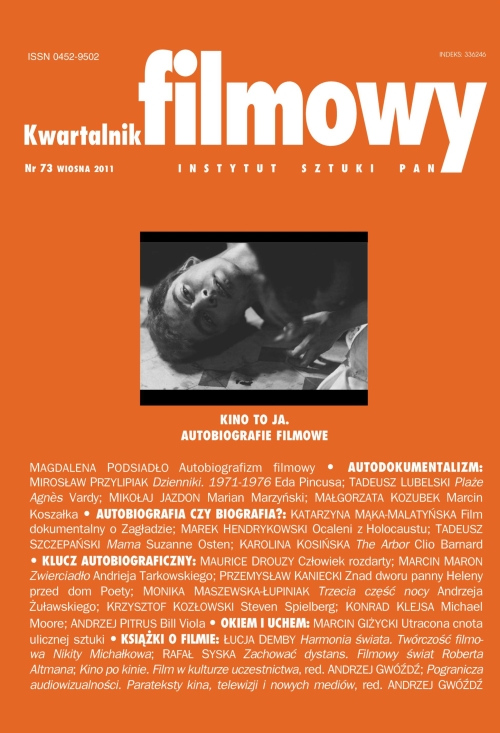"Dzienniki. 1971-1976" Eda Pincusa albo początki dokumentalizmu osobistego
Camera as a superego. Ed Pincus' "Diaries. 1971-1976" - the beginnings of personal documentaries
Author(s): Mirosław PrzylipiakSubject(s): Theatre, Dance, Performing Arts
Published by: Instytut Sztuki Polskiej Akademii Nauk
Keywords: Pincus Ed; documentary; autobiographism; American Cinema
Summary/Abstract: It was a long maintained belief that the documentary is a genre that should serve a public service, and not a question of personal statement. Although various forms of expression or creation were accepted, it was unthinkable for the film maker to direct the camera at himself. Although documentary makers smuggled into their documentaries their own visions of the world, or even memories from their lives, it was only acceptable if carried out in a discrete fashion, hidden within the presentation of the outside world. This convention was systematically overcome by the American avant-garde. The work of Stan Brakhage, Jim McBride and Ed Pincus were the steps on the path towards personal documentary. The gesture of directing the camera at oneself proved to be infectious. This type of documentary quickly became a leading poetics in the Boston group of document makers (Alfred Guzetti, Ross McElwee or Rob Moss). Soon this form became one of the most commonly used in the practice of documentary making. Przylipiak’s article focuses on the diary of Ed Pincus, who for five years filmed himself and his family.
Journal: Kwartalnik Filmowy
- Issue Year: 2011
- Issue No: 73
- Page Range: 22-32
- Page Count: 11
- Language: Polish

